Discloses Ambassador Teymurov of Azerbaijan at an interview with The Korea Post
“Today, the Republic of Azerbaijan under the leadership of President Ilham Aliyev as an independent, sovereign and democratic country, brings into reality the aspirations and ideals of the Azerbaijan Democratic Republic with its good and effective management, socio-economic and human capital development as well as its growing role and prestige in international relations.”
So said Ambassador Ramzi Teymurov of the Republic of Azerbaijan in Seoul at an exclusive interview with The Korea Post media, 36 years old this year and publishing 3 English and 2 Korean-language news publications.
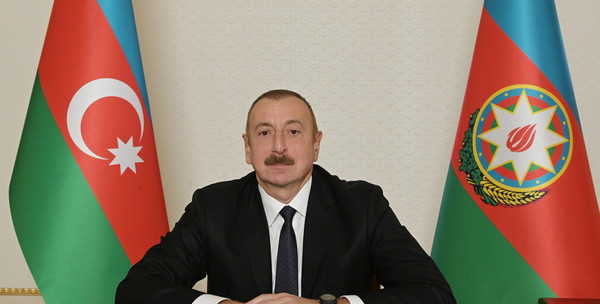
Then said Ambassador Teymurov, “If the founders of the Azerbaijan Democratic Republic were alive, they would have been proud of today’s Republic of Azerbaijan: He quoted the National Leader Heydar Aliyev as saying: “Azerbaijan’s independence is eternal and irrevocable.”
Details of the interview with Ambassador Teymurov follow:
Question: Please introduce the National Day of Azerbaijan in detail:
Answer: The people of Azerbaijan are justifiably proud that the first ever Azerbaijan Democratic Republic was established 103 years ago. This is a historic event, a historic event for our people and on a global scale. A democratic republic was established for the first time in the Muslim world. This in itself showed again how progressive and talented our people are.
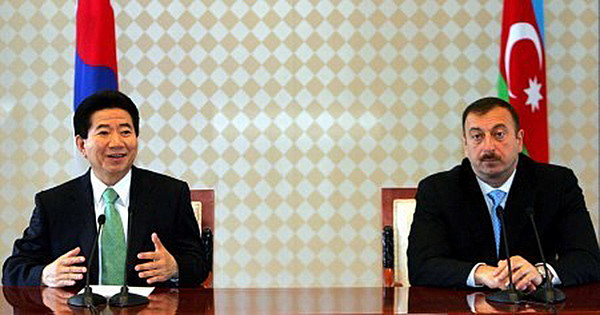
In its brief existence of fewer than two years, the Azerbaijan Democratic Republic managed to take a number of important steps in the process of nation-building and the development of statehood. The national flag and citizenship of Azerbaijan were approved, and the national army was created. Baku State University was established. More than 200 laws were adopted, including a law granting women the right to vote.
Unfortunately, the Azerbaijan Democratic Republic did not last long. Two years later, our independence was taken away from us. The Bolsheviks invasion of April 1920 put an end to the independence of the Azerbaijan Democratic Republic. The people of Azerbaijan lived in the Soviet Union for 70 years.
In 1991 following the collapse of the Soviet Union, Azerbaijan regained its independence for the second time in the 20th century. The difficulties faced by the Azerbaijan Democratic Republic, including Armenia’s territorial claims and the war against Azerbaijan, geopolitical intrigues, the socio-economic problems engulfed the modern Republic of Azerbaijan.
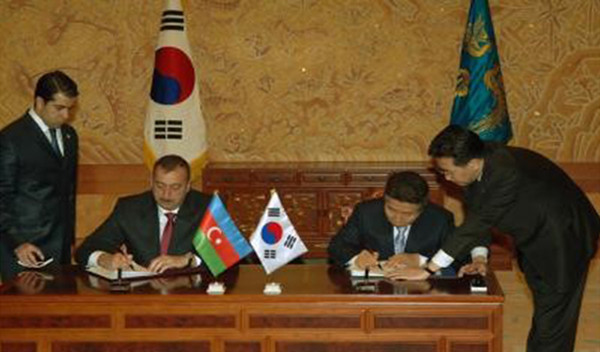
The policies pursued later by the national leader Heydar Aliyev developed the sense of national identity by reviving our deep historical and cultural memory, as well as by instilling a firm conviction for preserving and strengthening our independence and statehood. The Azerbaijani people treasure the statehood policy of the national leader Heydar Aliyev and celebrate the anniversary of their independence this year with the heightened sense of pride and particular spirit of festivity.
Today the Republic of Azerbaijan under the leadership of President Ilham Aliyev as an independent, sovereign and democratic country brings into reality the aspirations and ideals of the Azerbaijan Democratic Republic with its good and effective management, socio-economic and human capital development as well as its growing role and prestige in international relations. If the founders of the Azerbaijan Democratic Republic were alive, they would have been proud of today’s Republic of Azerbaijan. As articulated national leader Heydar Aliyev: “Azerbaijan’s independence is eternal and irrevocable.”
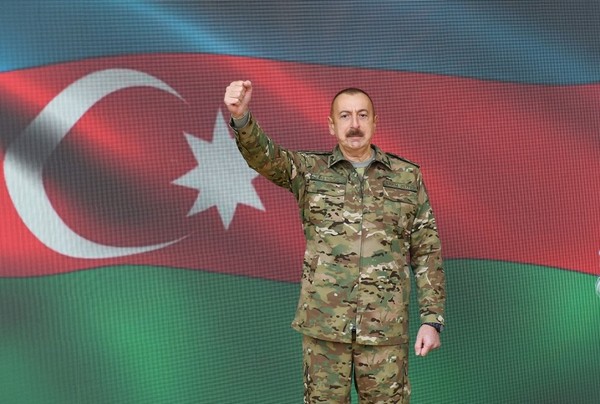
Q: Please introduce the major achievements of Azerbaijan under the wise leadership of President Ilham Aliyev.
A: Under the leadership of President Ilham Aliyev, Azerbaijan has gone through tremendous development: from socioeconomic and political points of view, in terms of improving the governance system and the dynamism of reforms.
We can see that over these years Azerbaijan has modernized and entered a qualitatively new stage. All spheres of the country’s life have been improved and changed beyond recognition. This renewal was accompanied by a steady increase in the well-being of the people and the solution of a significant part of accumulated problems. The government and the people have united around a single platform.
Unemployment in our country has dropped from 45 to 5 percent and poverty from 50 to 5 percent. In the early 2000s, energy, gas and water supply, roads, the condition of schools and hospitals in the regions were unsatisfactory. Currently, 95 percent of the country’s territory has gas supply. Over 18 years, about 16,000 kilometers of roads and more than 3,000 schools have been built; over 600 medical facilities have been rebuilt or renovated. During this time, more than 30 power plants have been commissioned. Azerbaijan has become an exporter of electricity.
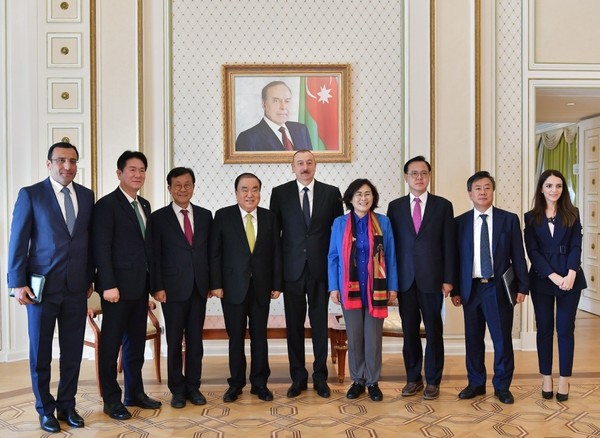
If we add to this the transnational energy and transport projects implemented on the initiative and with the participation of Azerbaijan, the entry of our country into a small club of space-faring nations, the picture will become even clearer.
The Baku-Tbilisi-Ceyhan oil pipeline about 2,000 kilometers in length was built between Baku and the Mediterranean port of Ceyhan. Moreover, the Southern Gas Corridor was commissioned on 31 December 2020. 3500 km long Southern Gas Corridor connecting 7 countries is one of the biggest energy infrastructure projects in the world.
Azerbaijan participates actively in regional connectivity projects, such as East-West, North-South, North-West transportation corridors, becoming one of Eurasia's main and reliable transportation and logistics hubs. Four years ago, the Baku-Tbilisi-Kars railway line connecting Turkey and Azerbaijan, Central Asia, and China was opened in Baku. It is possible to say that the implementation of another important project with the goal of establishing a speedy and viable trade link between Europe and Southeast Asia has been completed as well – the creation of a section of the North-South transport corridor passing through Azerbaijan.
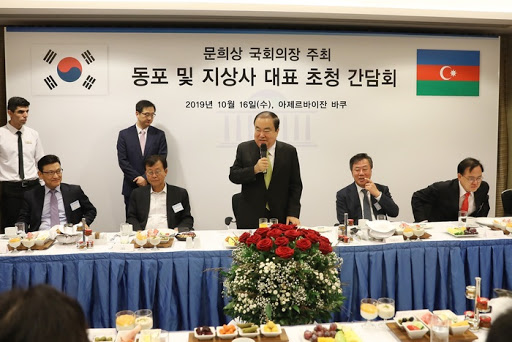
The list is quite long and multidimensional of important international events prior to COVID-19 pandemics hosted in Azerbaijan: the World Forum on Intercultural Dialogue, the Global Forum of the UN Alliance of Civilizations, the Summit of World Religious Leaders, as well as the first European Games, the Fourth Islamic Solidarity Games, Formula 1 events, the Summit of the Non-Aligned Movement...
Today, the world knows and accepts Azerbaijan as a reformer country. The Doing Business-2020 report of the World Bank ranks Azerbaijan among the top 20 reforming countries. The report of the Davos World Economic Forum ranks our country 10th in terms of long-term government strategy and fifth in terms of focus on reform.
“ASAN” service has gained worldwide fame as the intellectual brand of Azerbaijan. “ASAN”, which has put up a barrier to corruption, bribery, bureaucracy, and red tape in the services sector the population is in daily contact with, is not an ordinary project, but a radical reform that has caused satisfaction throughout the country and creating revolutionary changes in people’s mindset.
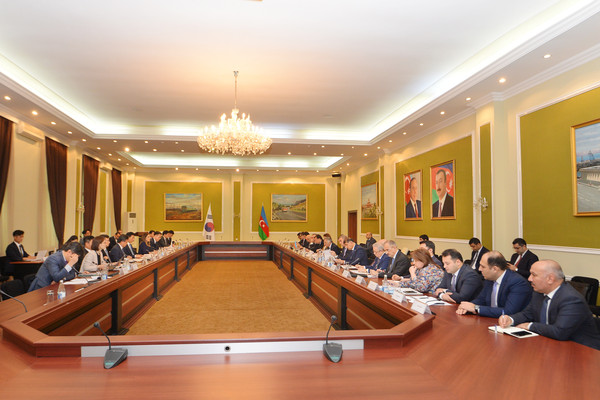
Q: What are the important events in Azerbaijan for 2021?
A: President of the Republic of Azerbaijan declared 2021 as a “Year of Nizami Ganjavi” in Azerbaijan. The 880th anniversary of the great poet and thinker Nizami Ganjavi is celebrated with various events throughout 2021.
Nizami Ganjavi, the greatest representative of the Eastern Renaissance, was born in 1141 in Ganja, one of the ancient cultural centers of Azerbaijan and the capital of the Azerbaijani Atabey's state. His birthplace is reflected in his name because Ganjavi means “from Ganja”.
Nizami Ganjavi combined philosophy and poetry with history and legend to create a literary legacy that resonates to this day. Nizami received an exemplary education that included science, mathematics, Islamic theology, history, philosophy, ethics, and Persian and Arabic literature. His education is often reflected in his poetry, which he began to write at the age of thirty.
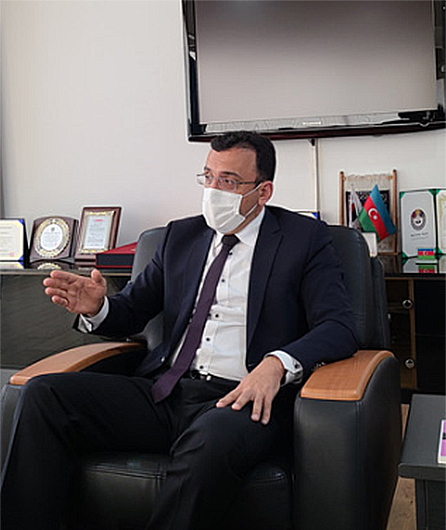
Nizami is best known for his Khamsa, or “Quintet” (five poems) - Treasury of Mysteries” (1175), Khosrow and Shirin (1180), Leyli and Majnun (1188), Seven Beauties (1197) and Isgandarname consisting of two parts – “Iqbalname” and “Sharafname” (1203). Each of the five epics composing his Khamsa are written with a unique meter. They laid a strong foundation for the great Nizami school of literature which continues to exert its influence nowadays. His works, with their unique poetic innovations and universal themes, have transcended borders to influence the literature of distant lands.
Known as a poet, scholar, and philosopher, Nizami is recognized for using his poetry to examine the development of mankind in society. His romantic epic poems are full of passionate emotion and philosophical commentary on humanity.
Nizami was not satisfied with just the deep intellect and poetic talent. Throughout his lifetime he pursued knowledge diligently and doubled his experience with his poetic talent; these two great attributes contributed to his scientific and philosophical research into the happiness of the human being.
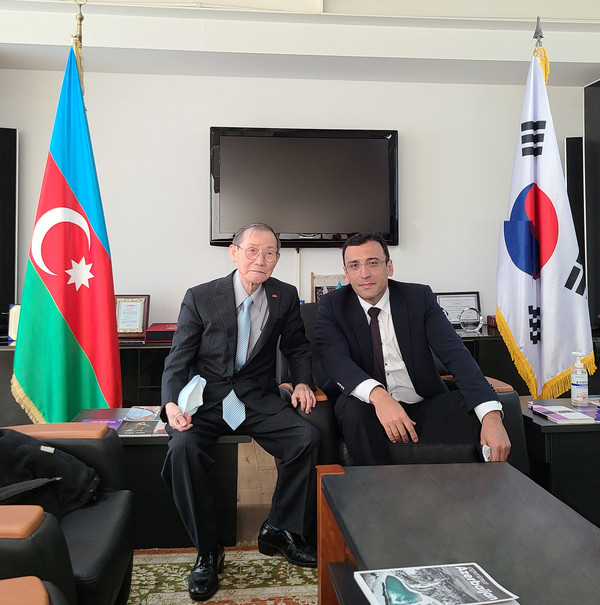
Nizami’s influence on literature lasted long after his death. He was a major proponent in the use of vernacular language in poetry, introduced new style concepts, and founded a new literary form. His literary impact spanned Iran, Turkey, Central Asia, and India, where poets imitated Nizami’s Khamsa in form and theme. Later poets such as Jami, Amir Khusro, Alisher Navoi, and Fuzuli were all heavily influenced by Nizami.
The works of Nizami Ganjavi have been translated into many languages. The rare manuscript copies of his works are kept and preserved like precious pearls in famous libraries, museums and literary foundations in cities such as Moscow, St. Petersburg, Baku, Tashkent, Tabriz, Tehran, Cairo, Istanbul, Delhi, London, Paris and others. His masterpieces have been translated into English, German, Italian, Spanish, Russian and other foreign languages and his lifetime and creative output have been thoroughly studied.
Q: What are the important developments between Azerbaijan and Korea in 2020-2021?
A: Azerbaijan and Korea enjoy fruitful ties that develop every following year. This year was also expected to be very dynamic in terms of cooperation, however, due to COVID-19 pandemics mutual visits as well as business-related events reduced or suspended for uncertain time.
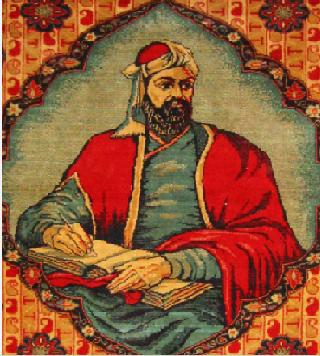
Luckily, just before the outbreak of COVID-19 we were able to organize the second meeting of the Joint Commission on Economic Cooperation between the government of the Republic of Azerbaijan and the government of the Republic of Korea in Baku in February 2020. Broad prospects for cooperation between countries in the field of ICT, e-government, transport, energy, science, culture, education, and other areas were discussed at the event.
Active cooperation between the two countries within the framework of a number of international organizations, in particular the UN, was also noted. Sides also emphasized the evolving cooperation between the two countries, especially in the areas of infrastructure, energy, construction, transport, information technologies, the environment, and alternative energy.
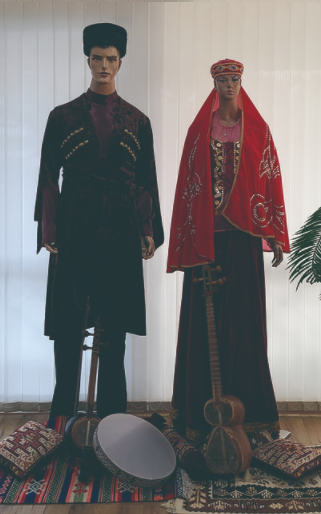
In order to exchange information on exhibitions, fairs, conferences, business forums, and other events held in both countries, it was proposed to organize business forums for businessmen, as well as provide mutual support in finding business partners. Following the discussions, the protocol of the second meeting of the Joint Commission on Economic Cooperation between the governments of the Republic of Azerbaijan and the Republic of Korea was signed.
As well known, Azerbaijan is Korea’s main trading partner in the South Caucasus region. Azerbaijan is mostly importing electrical machinery, vehicles, computers, and equipment from Korea. Meanwhile, the export from Azerbaijan is consisting of precious metals, juices, bedding items, and others. The world economic situation also highly affected the trade relations between Korea and Azerbaijan. The bilateral trade volume between Azerbaijan and Korea was 179 million USD for 2020. We hope the trade volume will increase with the kind efforts of our governments in the years to come.
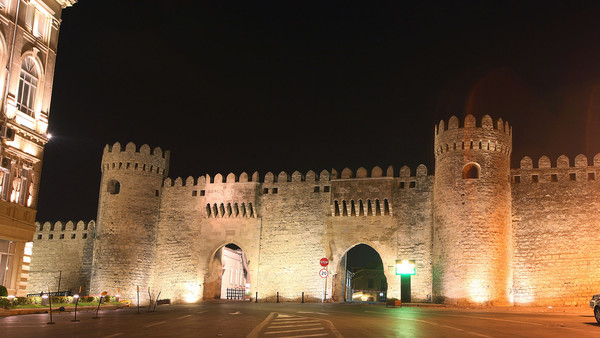
Q: How is the business environment in Azerbaijan?
A: Azerbaijan’s rich hydrocarbon resources have been attracting attention to its economy which consequently made the oil and gas sector the main target of foreign investments. Azerbaijan in its turn directed the oil and gas revenues for the development of the country and has managed to up-build modern communication and transportation infrastructure, as well as industrial, agricultural, service, educational, housing and healthcare sectors.
Azerbaijan inflows focus on the oil and gas sector, although one of the top priorities of the Azerbaijani Government is to diversify the country’s economy and attract FDI to agriculture, transportation, and tourism, and information and communication technology.
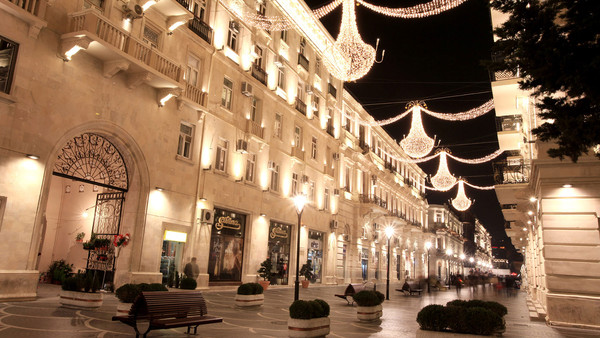
Over the past years, the government has implemented economic, business and law reforms to integrate the country more fully into the global marketplace, seeking to attract foreign investment, diversify its economy by adopting new regulations and policies.
As the result of reforms “One Window” principle was introduced, many tax incentives applied to stimulate the flow of foreign investments, registration procedures involving several governmental bodies have been eliminated and Azerbaijan Export and Investment Promotion Foundation has been created to support international companies. The government specifically put the focus on stimulative incentive programs by creating tax-free zones and technological parks where foreign investors can benefit from zero tax opportunities.
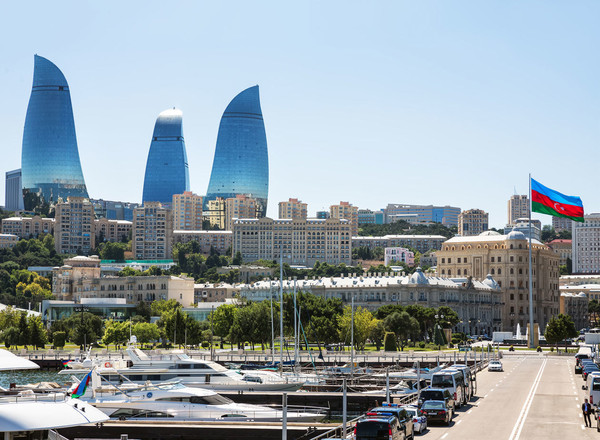
At the same time many state inspections, prior authorization requirements for foreign investment, technology transfer restrictions, foreign exchange restrictions, licensing for currency operations involving the movement of capital, limits on the amount of foreign capital in companies, restrictions on repatriation of profits and legal limitation on ownership have been stamped out.
In a word, the Azerbaijani Government encourages large-scale investments not only in the energy sector, but also in infrastructure projects, including the construction of highways, railways, and development of information technologies and agricultural sphere.
Of course, this would not be possible without the reforms and other significant efforts made by the government to create a healthy and enabling environment for foreign and local businesses.
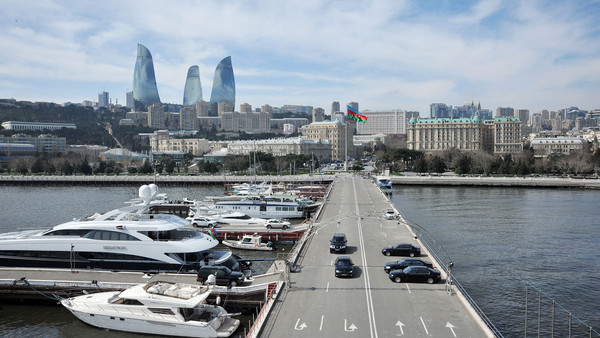
Q: What is the situation between Azerbaijan and Armenia?
A: Armenia had occupied the internationally recognized territories of Azerbaijan for almost 30 years. Due to this occupation, Azerbaijan lost the control over 20 percent of its territories and more than a million Azerbaijanis were expelled from their native lands, becoming refugees. A policy of ethnic cleansing was pursued against our people in early 90’s. The largest massacre committed by the armed forces of Armenia took place in Khojaly town of Azerbaijan in 1992 which caused the death of more than 600 innocent civilians, 106 women and 63 children were brutally killed.
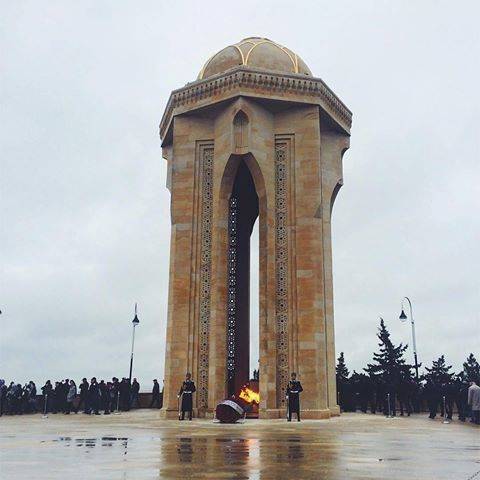
International organizations have consistently supported Azerbaijan’s position on Armenia-Azerbaijan conflict. However, this support was not tangible in real life because the issue remained unresolved. The UN Security Council, the world’s highest international body, has adopted four resolutions. Those resolutions demanded an immediate, complete and unconditional withdrawal of the Armenian armed forces from the occupied territories. Those resolutions were adopted in 1993 and had remained on paper.
Other international organizations’ resolutions supported Azerbaijan’s position as well which had enormous political and legal significance. The OSCE, the Non-Aligned Movement, the Organization of Islamic Cooperation, the European Parliament, the Parliamentary Assembly of the Council of Europe and other organizations have defended Azerbaijan’s just position. However, on a real and practical level, they failed to yield a solution to the problem.
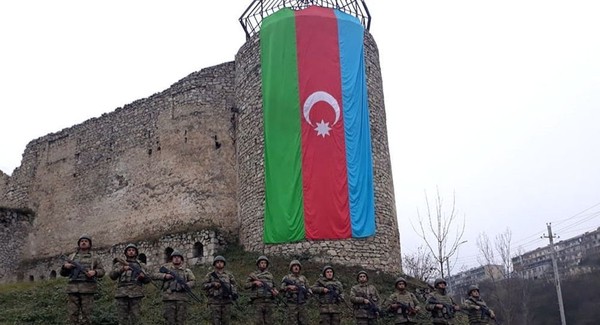
The OSCE Minsk Group was established in 1992 to resolve the conflict, and although it had been working for 28 years, there was no result. On the contrary, steps were taken to freeze the issue. As a matter of fact, Armenia refused to engage in negotiations, whereas, in previous years, it was at least involved in imitating the talks. Yet, in the last two to three years, they had been saying openly and demonstratively that not an inch of Azerbaijan’s land would be returned to Azerbaijan.
Also, the irresponsible and provocative actions and statements of the Armenian leaders rendered the talks meaningless. Two years ago, the Armenian Prime Minister said that “Karabakh is Armenia and full stop.” It demonstrated that the Armenian leadership considered the matter resolved and did not want to return the lands. Besides, the former Armenian defense minister threatened Azerbaijan with a new war. At a meeting with Armenian diaspora organizations in the United States, he announced that Armenia was preparing for a new war for new lands. That was a severe provocation against Azerbaijan.
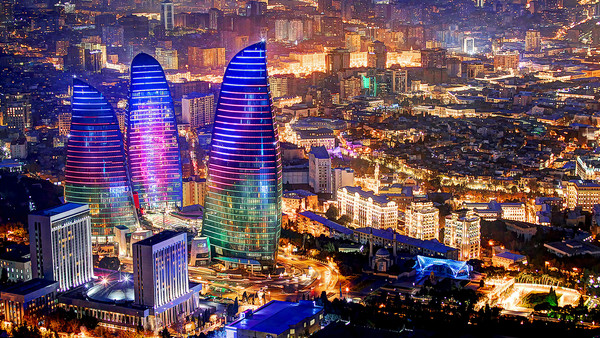
Another provocative step was the swearing-in of the illegal junta, the former head of the so-called “Nagorno-Karabakh Republic”, in the ancient Azerbaijani city of Shusha, our cultural capital. That was an insult to the Azerbaijani people. The relocation of the so-called parliament of the so-called “Nagorno-Karabakh republic” to Shusha and the construction of a building for the parliament was another provocative step. In other words, all these actions demonstrated that Armenia was provoking us, was counting on a harsh response from Azerbaijan to blame us later and try to procrastinate the issue for another 30 years.
Azerbaijan did not fall for the provocation. Azerbaijan acted with restraint, according to every norm and principle of international law, but Armenia committed a military provocation against us last summer. Our positions on the Armenia-Azerbaijan border came under fire. Armenian military units tried to cross our border, and several of our servicemen were killed. We responded, threw them back, but we did not cross the Armenia-Azerbaijan border. The military clash that lasted for several days stopped because we did not intend to wage war on Armenia’s territory. A month later, in August, a new provocation was committed when a sabotage group was sent to Azerbaijan. The head of the subversive group was detained and testified that he was sent to Azerbaijan to carry out acts of terror – so that was another provocation.
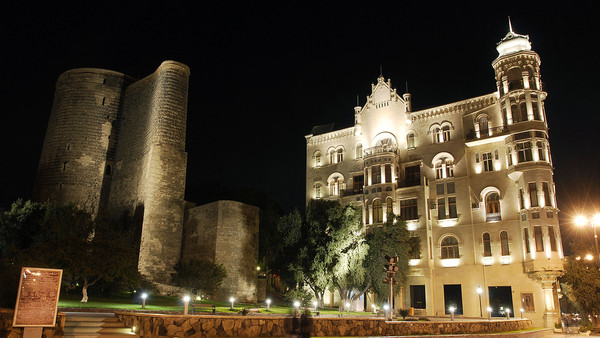
Finally, in late September, our military positions and residential areas came under artillery fire, and several of our servicemen and civilians were killed. Naturally, Azerbaijan responded befittingly, conducted a counter-offensive and punished the enemy.
The 44-day Karabakh war resulted in a complete victory for Azerbaijan. Azerbaijan regained its territorial integrity; more than 300 towns and villages were liberated on the battlefield. Our historic city of Shusha was rid of the invaders on 8 November, and Armenia was forced to sign an act of capitulation.
On November 10, 2020, the presidents of Azerbaijan and Russia and Armenia’s prime minister signed a statement. Based on this statement, our other districts were returned to Azerbaijan through political means. Thus, the issue was resolved by both military and political means. It is safe to say that the Nagorno-Karabakh issue, the Nagorno-Karabakh conflict, has been resolved. There is presently no administrative unit named Nagorno-Karabakh. Azerbaijan has resolved this issue, achieved a historic victory and started restoration work in the destroyed areas.
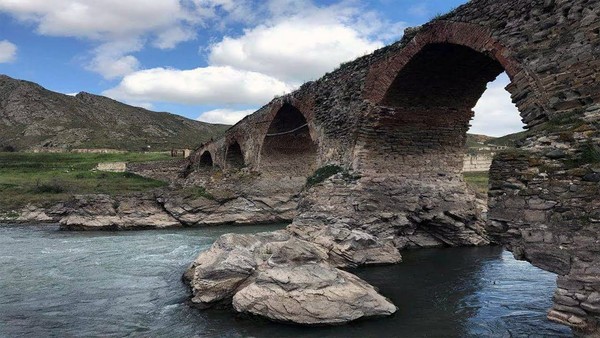
Everything in the liberated lands has been destroyed. Foreign and local journalists have called Aghdam the Hiroshima of the Caucasus. Armenians have ravaged our cities, annihilated our historical sites, plowed the cemeteries, knocked down gravestones, and wrecked more than 60 mosques and kept cows and pigs in semi-demolished ones.
After the war, many Azerbaijani civilians and servicemen were killed and wounded by landmines. Armenia has not yet presented the maps of minefields to us. That is another war crime. Therefore, demining will take more time. Without completing this work, of course, we will not be able to return our IDPs and refugees to those lands.
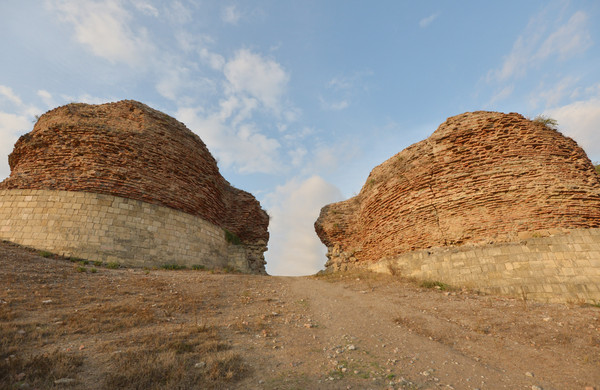
Q: How is Azerbaijan fighting against COVID-19?
A: Azerbaijan was among the first countries to mobilize global efforts against COVID-19 pandemic. Azerbaijan initiated the Summit of the Turkic Council, the Summit of the Non-Aligned Movement, two international institutions which we are now chairing and the Special Session of the UN General Assembly at the level of the heads of state and government last year. These initiatives once again demonstrated our commitment to international solidarity and cooperation.
From the beginning of the pandemic, we are closely working with the World Health Organization. We have made voluntary contributions to the World Health Organization and provided humanitarian and financial assistance to more than 30 countries related with the pandemic.
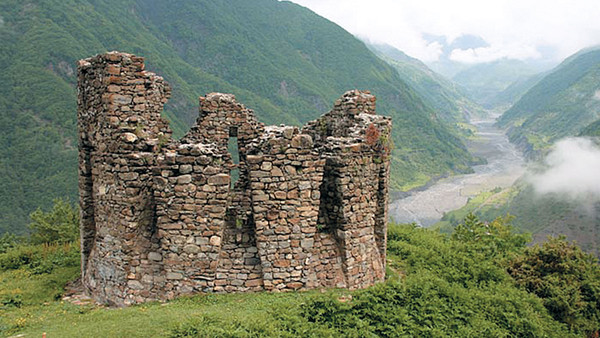
Azerbaijan launched vaccination campaign on 18 January. We are among the first in the region to start vaccination. According to the latest official figures for the end of April, 14% of 10-million-population of Azerbaijan has already been vaccinated.
I must also bring to your attention that my country condemns unequal and unfair distribution of vaccines among developing and developed countries. Unfortunately, some countries purchase several times more vaccines vis-à-vis their actual needs. It is clear that in such circumstances, some countries will face vaccine shortage.
In this regard, Azerbaijan has also initiated a draft resolution on behalf of the NAM at the UN Human Rights Council on this matter and resolution titled Ensuring equitable, affordable, timely, and universal access by all countries to vaccines in response to the COVID-19 pandemic, adopted by consensus in March 2021.
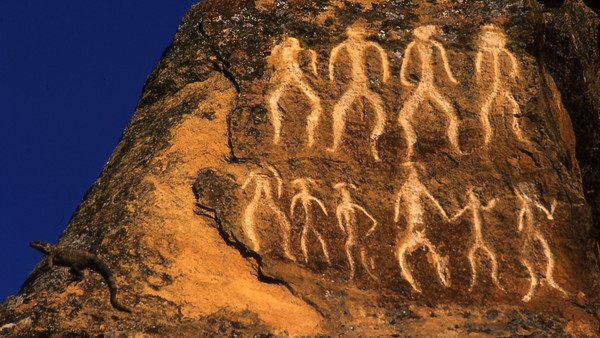
Q: We understand that Azerbaijan is rich in tourist resources. What are the reasons to travel to Azerbaijan?
A: In 2019 alone, more than 9,000 Korean citizens visited Azerbaijan, and we are expecting the above-mentioned number will be doubled in the years to come. During the last couple of years, with our Embassy’s support, specialized filming teams of Korea's KBS and EBS TV channels have visited Azerbaijan several times, preparing and airing good-quality Azerbaijan programs that covered the cultural and historical monuments as well as tourist attractions.
From skiing in winter to autumn festivals, witnessing Novruz in spring and feeling the Caspian vibe in summer, there are great reasons to visit Azerbaijan throughout the year.
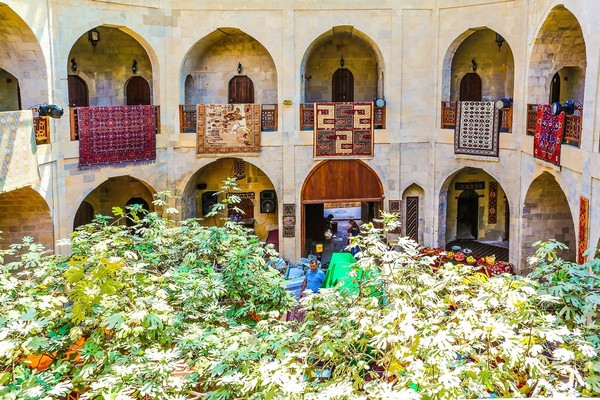
Winter months are the perfect time for a Christmas trip or New Year’s celebrations. From the beginning of December, festive cheer takes over Baku’s Fountains Square. While snow is a rarity in Baku, big Christmas trees and markets help to get everyone in the Christmas mood. For those who love a chilly mountain top, we could not recommend the ski resorts of Shahdag and Tufandag enough. Snow sports enthusiasts are welcome from December through to the end of March, and you can take your pick from the variety of hotels at each resort to suit how you want to usher the festive season in: snuggled up with your family, or on a romantic adventure with your loved one.
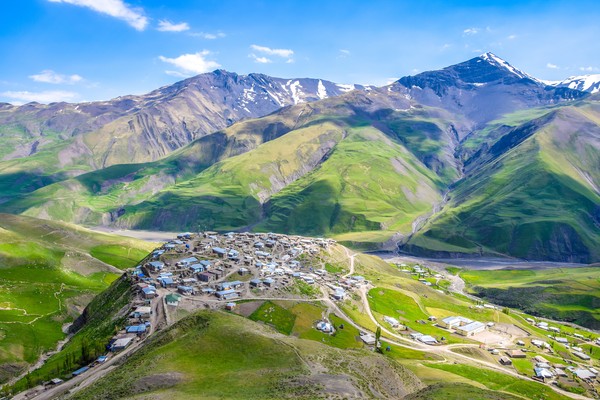
Spring in Azerbaijan is a special time as this is when nature awakens after its winter hibernation. What’s more, this is when we celebrate our favorite Azerbaijani holiday – Novruz – a festival of spring and the coming of the New Year. All Azerbaijanis take part in this traditional holiday with their customs and rituals that provide the perfect opportunity to witness Azerbaijani culture and traditions at their finest. You’ll be welcome not just to watch but also take part in celebrations! Occupying the small gap between spring and summer, May is an ideal time to get out and explore Azerbaijan’s many historical monuments and natural beauties. You can visit places like the Goygol and Maralgol lakes near Ganja and the ancient cities of Sheki and Gabala which will all delight you with their beauty. The Hirkan National Park is a great option for the ecotourists among and especially beautiful at this time of year.
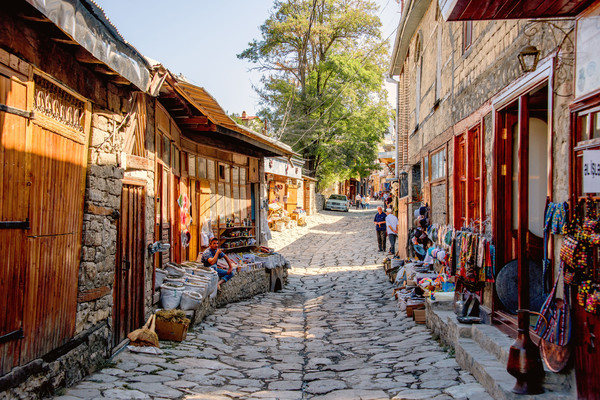
The period between early June and late August is Azerbaijan’s hottest and sunniest time. Summertime in Baku is the perfect medicine for those who crave respite from a long cold winter, especially if you paint your trip with the exciting colors of sunsets on the Absheron. Baku’s peninsula is lined with long beaches with all you need for a great summer holiday. Resorts have been built with excellent recreational facilities catering exclusively to your comfort. What’s more, this is a great time to tuck into Azerbaijani food and wine and to hunt for cultural and natural treasures in the countryside. Summertime is also the time for events and festivals. Experience big events like the Azerbaijan Grand Prix and the Zhara International Music Festival or discover small folk festivals like the Nomadic Culture Festival in Gadabay – a great place to try traditional food and chat to local people!
With cooler temperatures but still plenty of sunshine, this is a great season for long mountain walks, visiting national parks and enjoying exclusive spa breaks. Autumn in Baku is perfect for wandering around the city, but you can still venture from here far into the Caucasus Mountains. This is also the time of the annual grape harvest so why not pop into vineyards in Gabala, Ismayilli, Shamakhi or Goygol?
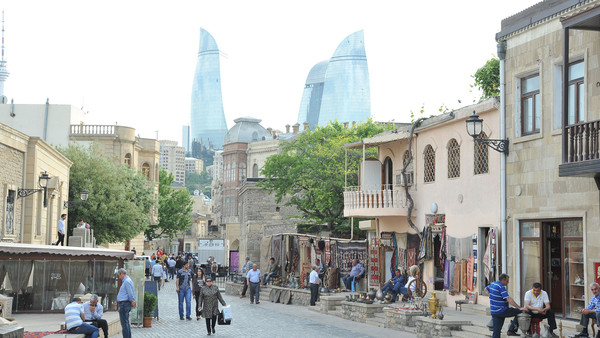
Besides trying all the delicious local wines, you might also be invited to take part in picking the grapes. November is a great month for slowly taking in the beautiful colors of the Caucasus. Wrap up warm and venture out to scenic forests and lakes.
Here I must add that newly liberated territories of Azerbaijan, after reconstruction work, will definitely become one of the most attractive tourist spots not only in the South Caucasus but at the global stage. Since newly liberated territories are not only attractive with their magnificent nature but also with cultural and historical heritage point of view as well. Though majority parts of those historical and cultural heritages were subject of destruction with the most brutal way during Armenian occupation, we will do our best along with our international partners to restore those cultural and historical “jewelries”, and present them to the attention of international community at earliest possible time.
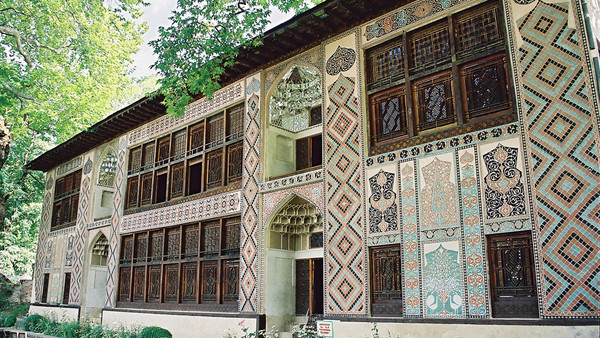
Q: What are the future perspectives of Azerbaijan?
A: Situated at the crossroads between East and West and between North and South, Azerbaijan functions as the natural transport corridor. Current trends and dynamics in Euro-Asian trade and common interests, projects, and areas of greater cooperation between regional states strengthen Azerbaijan’s position as a strategic hub in Central Eurasia.
As mentioned above, the multinational projects such as the Baku-Tbilisi-Ceyhan oil pipeline, Southern Gas Corridor gas pipeline and the Baku-Tbilisi-Kars railroad, initiated and mainly supported by Azerbaijan, plays undoubtedly a determining role in the future development of the region. These projects led and realized successfully so far by Azerbaijan had great results in developing different spheres of the economy of the whole region deriving its advantage of the important strategic-geographical position.
And of course, the recent liberation of our territories and restoration of Azerbaijan’s territorial integrity will stimulate business and different sectors of our economy creating new jobs, new opportunities and additional values.
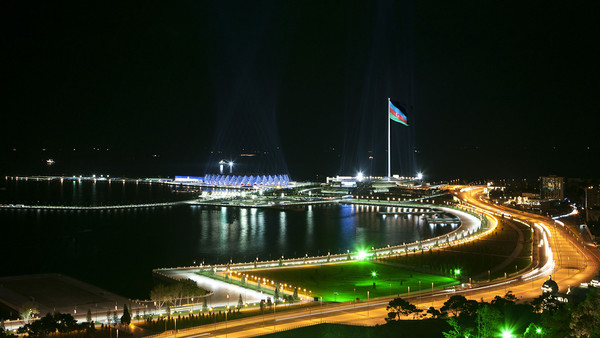
Korean government’s view of Azerbaijan:
The Korean government and people have a very high opinion of Azerbaijan and her people. The relations between the two countries have been growing remarkably and specially so since the accreditation of Ambassador Ramzi Teymurov in Seoul in August 2014—especially thanks to his personal interest in the promotion of relations and cooperation between the two peoples as well as the two governments.
According to the Korean Ministry of Foreign Affairs, Azerbaijan, located in the center of the South Caucasus and on the coast of the Caspian Sea, is rich with natural resources, oil and gas fields.
Being a link between Asia and Europe, Azerbaijan is also in a geographically favorable position. Azerbaijan has been implementing energy projects such as the Baku-Tibilisi-Ceyhan pipeline, which transports Caspian oil to the Mediterranean Sea since 2006, the Baku-Tibilisi-Erzurum pipeline that transports Azerbaijani gas to the central part of Turkey since 2007 and the Southern Gas Corridor support the energy security of the European continent.
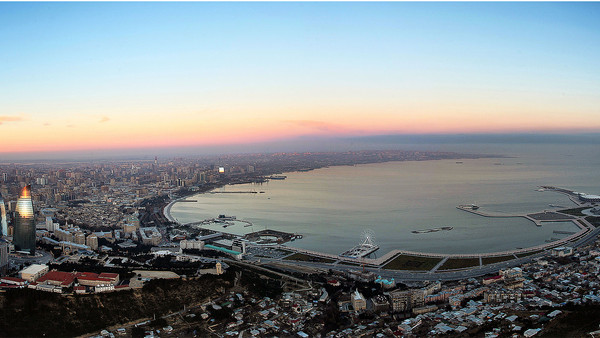
Since the establishment of diplomatic relations between Korea and Azerbaijan in 1992, President Roh Moo-hyun of the Republic of Korea (whom incumbent President Moon Jae-in served as Chief Secretary) visited Azerbaijan in May 2006, which was returned by the official return visit of Azerbaijani President Ilham Aliyev to Korea in April 2007.
The second visit of President Aliyev to Korea came to attend in the Seoul Nuclear Security Summit.
Since this exchange of visits between the two leaders, the relations between Korea and Azerbaijan have rapidly grown in the short span of time, which is expected to further develop and grow through increased cooperation in the political, economic, cultural and various other fields.
According to the Korean Foreign Ministry, there are many similarities between the two countries in their history, culture, traditions and language. Azerbaijani people show great interest in Korea. This leads to the increased number of students who are visiting Korea for learning Korean culture, history, etc.
Nowadays, Koreans are showing great interest in the Caucasus region, which was unfamiliar to Koreans. And this leads to the increased number of Koreans visiting Azerbaijan. Korea hopes that through mutual exchange and cooperation in various fields between our two countries, mutual understanding between the two peoples will be enhanced and a good relationship will continue to expand mutual benefits of both countries.

